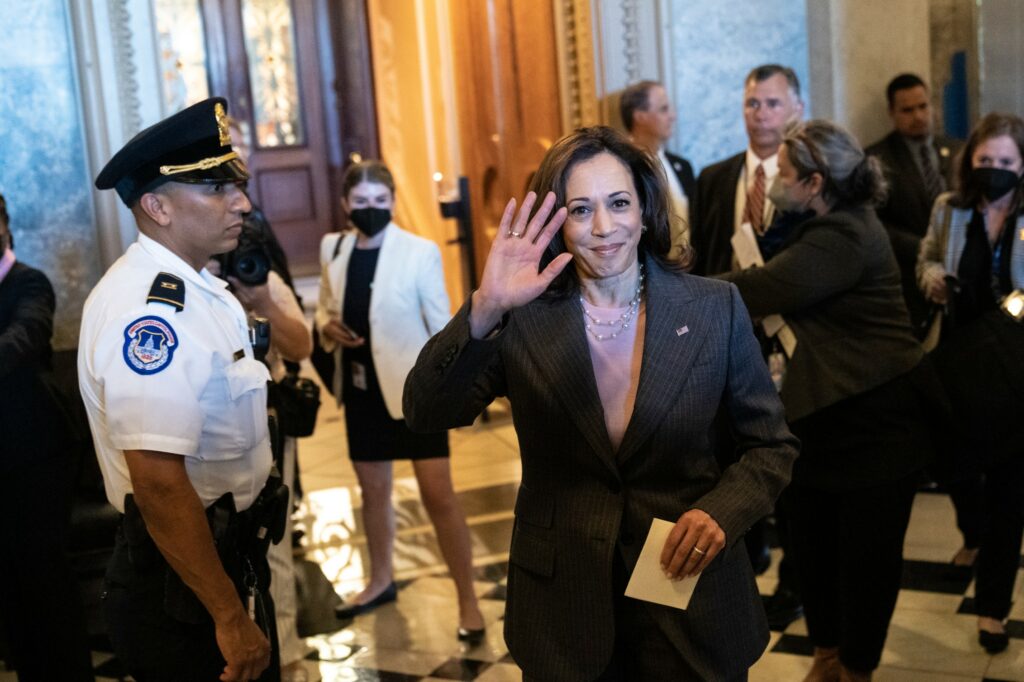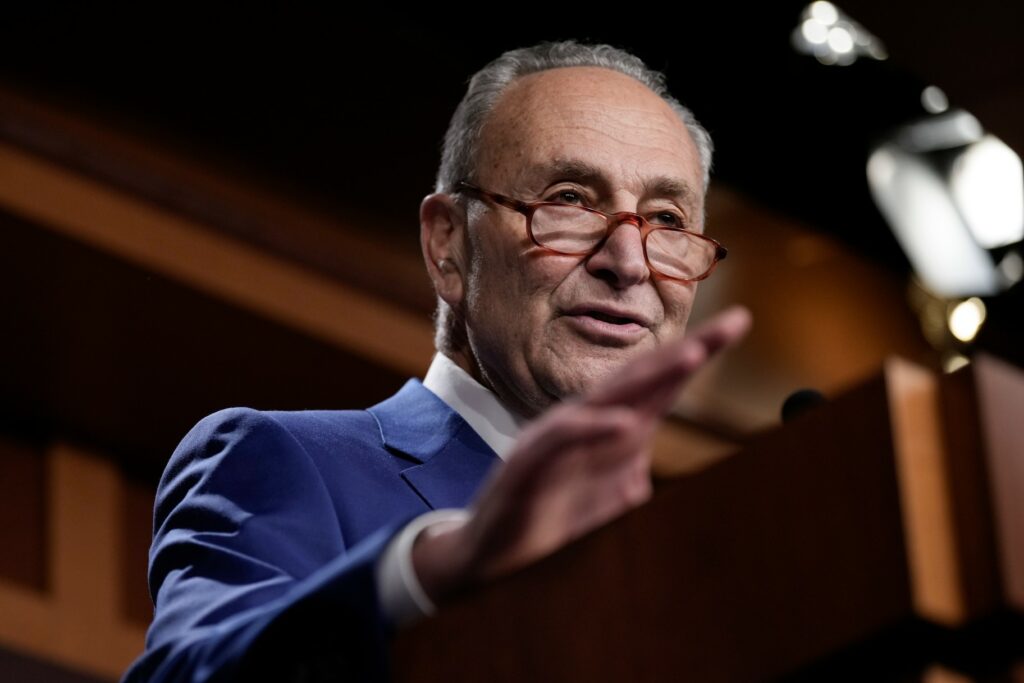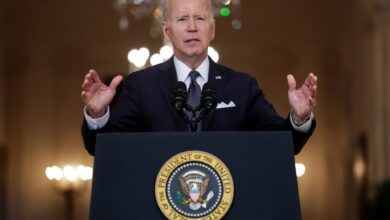Senates Passes Massive Inflation Reduction Act, Sending it to the House
Diving Deep Into the Details of the Inflation Reduction Act

In a major win for the Democratic Party, the Senate passed the Inflation Reduction Act on Sunday afternoon, a major piece of legislation that focuses on health care, climate change, and taxes. The $750 billion bill has been in discussion for months as Democratic leaders struggled to unify under what should and should not be included in the legislation.
Details of Inflation Reduction Act
Read More »
Credit: Drew Angerer/Getty Images News via Getty Images
The bill will now head to the House of Representatives for a vote. This vote is expected to happen on Friday, August 12. Assuming the Democratic-controlled House passes the bill, it will then head to the desk of President Joe Biden for the final green light. The piece of legislation has the potential to give the Democrats an important boost heading into the November midterm election.
If signed into law, the act will become the largest investment in climate in the history of the country. The bill would also represent a major shift in healthcare policy. According to data provided by the Congressional Budgeting Office (CBO), the bill would reduce the national deficit by over $300 over a decade. These savings would come in the form of new taxes including a 1% additional tax on stock buybacks along with a 15% minimum tax on some of the largest corporations. The CBO said that the act would raise over $700 billion in government revenue over the next decade while spending slightly over $430 billion.
The bill looked to be dead in the water last week before Arizona Sen. Kyrsten Sinema threw her support behind the legislation, becoming the last Democratic senator to agree to the package. The legislation also needed the support of Democratic Sen. Joe Manchin of West Virginia. During the early stages of negotiation, Manchin was not in support of the many climate and tax provisions. However, the moderate Democrat changed his mind a few weeks ago, giving the proposed legislation new life.
While the passage by the Senate represents a major win for the Democrats, the bill still falls well short of the $3.5 trillion reconciliation package that party leaders first introduced last year.
Healthcare Provisions of Bill
One of the major tenets of the bill is the focus on the nation’s healthcare system. The historic legislation would give Medicare the power to negotiate the prices of some of the most expensive prescription medications. By the year 2029, Medicare would be empowered to negotiate the prices of 20 drugs per year.
The act would also change Medicare’s Part D drug plans, capping the out of pocket costs for seniors and those with disabilities for medications purchased at the pharmacy at no more than $2,000 per year. The onus would fall on insurance companies and drugmakers to pay more of the costs. Medicare enrollees would also receive all vaccines at no cost.
The Democrats are touting that the bill would extend the enhanced federal premium subsidies for the Affordable Care Act (ACA) through 2025. The subsidies had already been extended through this year as part of the American Rescue Plan that was passed in March of 2021. The goal of this part of the legislation is to make health care coverage under the ACA within reach for Americans.
The CBO estimates that extending these premium subsidies would cost about $64 billion. However, Democrats point to data that indicates that over 3 million Americans would lose insurance this year without this protection. In addition, almost all of the 13 million Americans that are currently being subsidized will see an uptick in premium costs for the year 2023 without this piece of the legislation.
Lastly, the bill would also cap the prices for insulin at $35 per month for Medicare enrollees. While most Democrats had wanted to enforce this maximum price in the private insurance market, the Senate parliamentarian ruled that this provision was not compliant with the reconciliation rules.
Climate Provisions

The legislation also represents what could become the largest investment fighting climate change in U.S. history. According to the office of Majority Leader Chuck Schumer, the bill would cut U.S. greenhouse gas emissions by 40% by 2030. This would be achieved through a variety of provisions, including electric vehicle tax credits to investments in clean energy manufacturing.
For example, the bill would lower the costs of heat pumps, electric HVAC and water heaters, and rooftop solar panels through the use of consumer tax credits. The bill also sets aside $60 billion for investment into clean energy manufacturing, with another $4 billion for drought funding to combat the ongoing dry conditions out West.
Tax Implications
According to the Biden administration, families making less than $400,000 annually would not be impacted by the tax implications of the bill. The legislation is designed to impose a 15% minimum tax on the book income generated by corporations boasting profits of over $1 billion. Sinema was able to negotiate more write off investments for these corporations, helping them to reduce their overall tax burden.
The bill would generate an additional $74 billion through the use of a 1% excise tax on stock buybacks for companies. The package also provides more funding to the Internal Revenue Service (IRS) in order to more effectively and efficiently collect taxes. Experts agree that this provision would bring in another $124 billion.
The act represents a win for small businesses with no new taxes for this sector.
Did you find this content useful? Feel free to bookmark or to post to your timeline for reference later.





